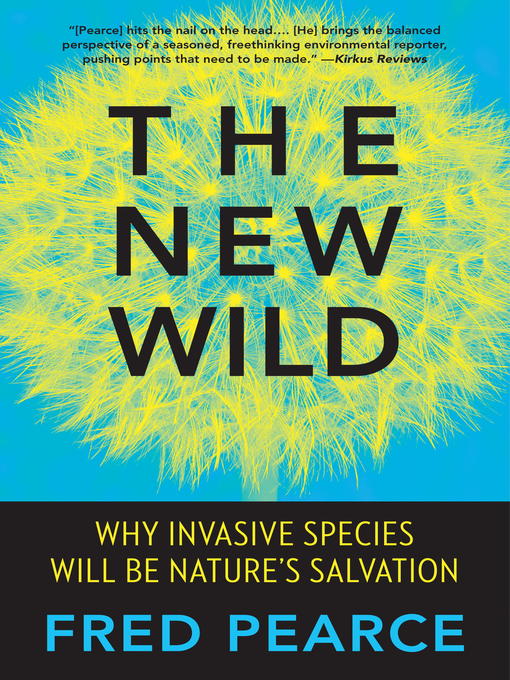For a long time, veteran environmental journalist Fred Pearce thought in stark terms about invasive species: they were the evil interlopers spoiling pristine “natural” ecosystems. Most conservationists and environmentalists share this view. But what if the traditional view of ecology is wrong—what if true environmentalists should be applauding the invaders?
In The New Wild, Pearce travels across 6 continents to rethink conservation and restoration in the 21st century, offering a paradigm-shifting exploration of the “new ecologists” who believe invasive species aren’t a scourge but a sign of nature’s strength. Rather than fighting a losing battle to protect what we imagine to be pristine, we need to encourage nature’s rebirth by celebrating the species that are most able to adapt.
In an era in which humans have affected every inch of the planet through globalization and climate change, there are no undisturbed ecosystems—and most are a mixture of native and alien who get along just fine. But by embracing the new ecology, we can help nature regenerate. To be an environmentalist in the 21st century means embracing nature’s wildness and capacity for change.
-
Creators
-
Publisher
-
Release date
April 7, 2015 -
Formats
-
Kindle Book
-
OverDrive Read
- ISBN: 9780807033692
-
EPUB ebook
- ISBN: 9780807033692
- File size: 986 KB
-
-
Languages
- English
-
Reviews
-
Kirkus
January 1, 2015
Environmental journalist Pearce (The Land Grabbers: The New Fight over Who Owns the Earth, 2012, etc.) examines the effects of introduced species and our responses to them. It is time to stand back and look at the evidence when we come to judge and respond to "invasive" species, writes the author; at this point, pretty much the majority of species is invasive rather than endemic. Pearce appears ready to swing the pendulum away from conserving the "pristine" to utterly "novel ecosystems," and part of that change will entail sometimes-irksome invasive species. Nature is dynamic and cannot be conserved in aspic; on the other hand, to claim a noninterventionist approach is just as unreal, since humans are forever intervening in nature's progress. When Pearce writes, "we need to lose our fear of the alien and the novel," he hits the nail on the head. When he follows that line with, "It means conservationists must stop spending all their time backing loser species-the endangered and the reclusive," he sounds like a crank eugenicist. Are alien species really "nature at its best"? However, few would disagree with the author that introduced species do not deserve to be ecologically cleansed. Yes, Pearce admits, alien species can cause us "inconvenience," but then how does it follow that we should "let [nature] run wild"? For the most part, the author brings the balanced perspective of a seasoned, freethinking environmental reporter, pushing points that need to be made-nature is a hothouse of change, an often temporary arrangement, and open to being remade-and what we think of as invasive is mostly hardiness and lack of competition that in many instances finds a new equilibrium, the incomers becoming "model eco-citizens." Pearce's book could use some pruning and shaping of its own, but his theme is significant: There is no going back when change is the norm.COPYRIGHT(2015) Kirkus Reviews, ALL RIGHTS RESERVED.
-
Loading
Why is availability limited?
×Availability can change throughout the month based on the library's budget. You can still place a hold on the title, and your hold will be automatically filled as soon as the title is available again.
The Kindle Book format for this title is not supported on:
×Read-along ebook
×The OverDrive Read format of this ebook has professional narration that plays while you read in your browser. Learn more here.

